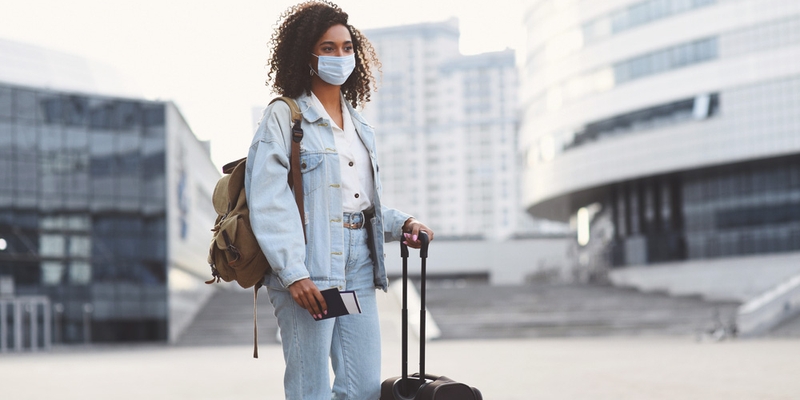
If you are not redirected within 30 seconds, please click here to continue.
Samedi: 10h – 16h HAE

If you are not redirected within 30 seconds, please click here to continue.
If you are not redirected within 30 seconds, please click here to continue.
What travellers should know about compassionate entry to Canada during the COVID-19 pandemic

If the worst has happened and you need to enter Canada to attend the funeral of a friend or loved one, you might be wondering how the pandemic will factor into your travel plans. Though you're arriving under difficult circumstances, all travellers entering Canada must follow COVID-19 testing and quarantine requirements, no matter their citizenship.
However, you may be able to apply for a compassionate exemption from quarantine and access exceptions for visitation. This exemption means that you can break your quarantine period to attend a funeral or be present with a dying loved one.
You can apply for a compassionate exemption online if:
- You need to leave your place of quarantine for compassionate reasons.
- You'll quarantine where you'll support or care for a critically or terminally ill person, or where you’re having the funeral or end-of-life ceremony.
How compassionate exemption works for the vaccinated vs. unvaccinated
The good news is that for fully vaccinated travellers, there are currently no quarantine requirements as long as you meet a number of pre-entry testing and ArriveCAN requirements. This includes a negative COVID-19 test within 72 hours of your arrival and uploading your proof of vaccination records in the ArriveCAN app.
However, if you’re chosen for random testing upon arrival, you’ll be required to quarantine until your test results come back. In this case, you may need to apply for a compassionate exemption to attend your loved one’s funeral.
Unvaccinated travellers, however, will need to apply for a compassionate exemption regardless, as they are required to quarantine upon arrival in Canada. Keep in mind that unvaccinated travellers cannot board a flight in Canada for domestic travel, either, so you’ll want to choose an airport as close to your destination as possible.
Quarantine exemptions for compassionate reasons
According to the Government of Canada, you can apply to enter the country or for limited release from quarantine if it's to:
- Be present during the final moments of life for a loved one
- Provide support to a person who's critically ill, as determined by a licensed health care practitioner in Canada
- Provide care to a person who has a medical reason, as determined by a licensed health care practitioner in Canada
- Attend a funeral or end-of-life ceremony
The person you'll care for or visit must reside in Canada and be one of the following:
- Canadian citizen
- Person registered under the Indian Act
- Permanent resident of Canada
- Temporary resident of Canada
- Protected person (refugee status)
If you need a compassionate exemption, you must request it online and receive approval from the Public Health Agency of Canada (PHAC) prior to your entry to Canada. You could be denied entry into Canada without this advanced approval. You’ll then need to print or take screenshots of your compassionate approvals and attachments to show to border officials as you enter Canada. While the PHAC’s goal is to respond to applications within seven business days, it’s always better to give your application more time for approval.
Why you should purchase travel insurance if you’re travelling for compassionate reasons
One of the most important things you can do before your trip — especially given changing COVID-19 travel protocols — is to purchase travel insurance. There are a few different options when it comes to travel insurance, the most common being trip cancellation and medical coverage.
Trip cancellation insurance is just how it sounds — you’re insured in case your trip is cancelled for any reason. This can be due to a cancelled flight or a sudden illness ahead of your trip. Medical insurance covers you in case you contract COVID-19 while you’re away, as well as several other health concerns requiring medical treatment abroad.
Additionally, there’s also travel insurance for visitors to Canada, which provides emergency medical coverage while you’re in the country for up to a year.
Keep in mind that this information is current as of publication and could change as the government updates its policies due to the evolving COVID-19 pandemic.
Don't waste time calling around for travel insurance
Use RATESDOTCA to shop around, and compare multiple quotes at the same time.
Finding the best travel insurance coverage has never been so easy!
Get money-saving tips in your inbox.
Stay on top of personal finance tips from our money experts!










